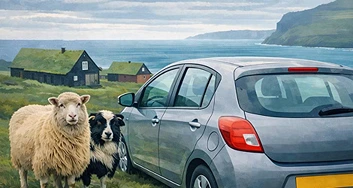The #DTTT welcomed more new perspectives and industry experts to our fourth Weekly Tourism Industry Impact Call. Each week brings new contributors and new insights as the situation evolves. We continue to follow the progress of destinations and support their recovery, with every effort made to provide industry solutions and key learnings for all.
In Week 4, insights were shared from Visit Austurland, Visit Scotland, Visit Ljubljana and many more. In this ever-changing and uncertain climate, destinations are becoming more mindful of their messages as the full impact of the pandemic is becoming clear. Recovery is going to be a gradual process and the strategy now is for long-term planning. Supporting local businesses and regional tourism is the first step on the long road back to normality. It is unlikely that the world and the industry will be the same post COVID-19, and therefore DMOs must prepare for the challenges ahead.
Listen to the full podcast 👇
DMOs are a support network for local businesses
Many industry businesses are still in shock from the impact of COVID-19, that has decimated the industry and the economy. For many businesses impacted, support starts at home. Visit Austurland is a champion of this approach, providing a key support network for local businesses. It is actively helping local businesses apply for government funding, offering them guidance, and giving them essential support to help them survive. Access to good government schemes will ensure these businesses strengthen at the core. This proactive approach is vital for the long-term survival of the destination and DMOs can play a huge part in this.
Recovery will be determined by political factors
It has become clear that tourism recovery will be gradual, happen in phases and also be influenced by political decisions and regulations. The industry will not have the power to react until it is permitted to do so. Hence, while the industry plays the waiting game, it can use data and predictions to think about all informed scenarios and get a clear picture. Now is the time for the industry and businesses to refocus, encourage innovation, in order to ensure that they can come back stronger.
Mindful messaging is needed to respond to the current mindset
Good communication and the right messaging is very important during this sensitive time. Visit Scotland is not using its business as usual model, it has had to adapt. Their message is now moving from encouraging proactive destination dreaming, to focusing on actual bookings at the end of the year. During COVID-19, DMOs messages need to address people’s mindset which has changed. The key message now is about looking out for each other. In terms of tourism, it is about focusing on the short-term. Promoting regional tourism and encouraging people to buy local and book a staycation.
Be inspired by your visitors and open the conversation
The pandemic has ensured that every DMO has had to rethink their communication strategy. Visit Ljubljana’s initial strategy delivered the key messages of safety and guidance, but then the direction changed. This change was brought about by Ljubljana’s target audience, their visitors. Social Media gave them a platform to interact directly with Ljubljana, share their memories and start a conversation. Visit Ljubljana took this one step further, opening the conversation to everyone and starting the movement #LjubljanaMemories. This UGC campaign has proved very successful for Ljubljana, who have stayed positive and kept communication consistent. The content created will be used to generate bookings and keep their destination top of mind.
Regional Tourism will be the first step to recovery
Travel recovery will be in phases, therefore a sensible approach must be adopted which will get us back to normal. For Visit Scotland, regional and domestic tourism is the first focus. As restrictions start to lift, the natural progression will be local day trips, promoting the city locally, exploring the region and the country, then finally looking towards the international markets when it's appropriate. It is a good time for DMOs to adapt their services to be relevant and affordable to the domestic market and ensure it’s what they need.
DMOs have to respond to people’s fear of the virus
Eventually governments will allow travel, and when this time comes, destinations need to be aware that people will still be fearful of travel. To date, travel has had the highest level of cancellations and a lowest level of bookings, despite messages from DMOs advising visitors to postpone and agents offering low prices to book. The impact of COVID-19 and its presence in the travel industry has depleted people’s confidence. When people are able to travel again, they will be looking to avoid crowds and overcrowded cities. They have seen the worst case scenarios played out and will not want it happening to them. More solitary locations and activities considered lower risk will be preferred during the early stages of recovery.
These are some of the takeaways from our fourth weekly tourism impact call. The key focus now is about refocusing, supporting local businesses, being sensitive to people's fears and implementing a gradual recovery plan, starting within the destination.





















.webp)
